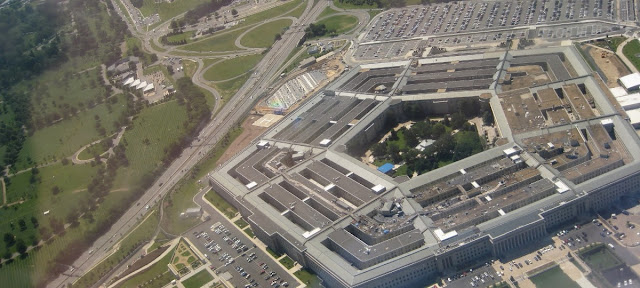Top American military brass weighed in this morning on energy security with an emphasis on conservation, efficiency, and alternatives. A little climate change even crept into the discussion as well.
The occasion was a Department of Defense conference titled “Empowering Defense Through Energy Security” sponsored by the Office of the Under Secretary of Defense for Acquisition, Technology & Logistics and the United States Air Force, Army, Navy and Marine Corps leadership. The new
Office of Operational Energy Plans and Programs was on point.
Starting at the top, Chairman of the Joint Chiefs of Staff Admiral Mike Mullen set the tone:My friend and columnist Tom Friedman has spoken eloquently of the growing need – and awareness – to rethink our views on energy – and minimize our dependence on overseas energy sources that fuel regimes that do not always share our interests and values, while not further damaging a world that is already becoming overheated, overpolluted, and overstretched.
We in the Defense Department have a role to play here – not solely because we should be good stewards of our environment and our scarce resources but also because there is a strategic imperative for us to reduce risk, improve efficiencies, and preserve our freedom of action whenever we can. …
So, to start with, let’s agree that our concept of energy must change. Rather than look at energy as a commodity or a means to an end, we need to see it as an integral part of a system … a system that recognizes the linkages between consumption and our ability to pursue enduring interests.
When we find reliable and renewable sources of energy, we will see benefit to our infrastructure, our environment, our bottom line … and I believe most of all … our people. And the benefits from “sustainability” won’t just apply to the military.
The wider context of climate change and its security implications also found a place in Admiral Mullen’s remarks:Beyond these immediate benefits, we may even be able to help stem the tide of strategic security issues related to climate change.
This is no small matter. In addition to the newly developing waterways near the polar icecaps, in 2008, the National Intelligence Council identified twenty of our bases that are physically at risk as a result of the rising level of the ocean.
And regardless of what the cause of these changes is – the impacts around the world could be sobering – and far-reaching.
As glaciers melt and shrink at a faster rate, water supplies have been diminishing in parts of Asia.
Rising sea levels could lead to mass migration and displacement similar to what we have seen in Pakistan’s flood … and climate shifts could drastically reduce the arable land needed to feed a burgeoning population as we have seen in Africa.
This scarcity of – and potential competition for – resources like water, food, and space – compounded by an influx of refugees if coastal lands are lost … could not only create a humanitarian crisis, but create conditions of hopelessness that could lead to failed states … and make populations vulnerable to radicalization.
These challenges highlight the systemic implications – and multiple-order effects – inherent in energy security and climate change.
Admiral Mullen then gave way to General Norton A. Schwartz, chief of staff of the U.S. Air Force; General Peter W. Chiarelli, vice chief of the U.S. Army; Aneesh Chopra, the federal chief technology officer; and Secretary of the Navy Ray Mabus, with Sharon Burke, director of operational energy plans and programs, running the show.
And while the brass met inside, clean energy companies exhibited their wares in the Pentagon’s inside courtyard.
Photo Credit: “the Pentagon from above,” courtesy of flickr user susansimon.
 A Publication of the Stimson Center.
A Publication of the Stimson Center.




